Yay! It's your lucky day! ALL 34 life-changing conversations of the Understanding People Pleasing Interview Series
are still AVAILABLE!
Your special ALL ACCESS VIP pass awaits!
That's right - for just $97 your VIP PASS includes...
ACCESS TO Video training from 30+ Leading Experts, PLUS:
Unlimited replays of all of the recordings at your fingertips in both audio and video format
Each recording transcribed for you
Our Action Workbook that has: summaries of key points, highlighted expert quotes, and self-reflection journal prompts so you can really engage with the content and personalize to your own journey!
Lifetime access to the entire Interview Series
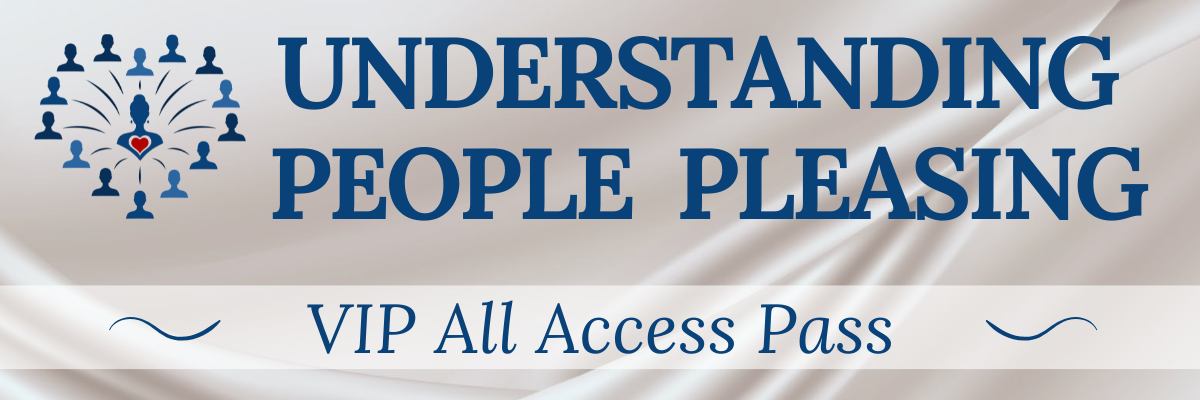
Featuring 30+ Experts & Top Influencers
Get your on-demand Lifetime All Access VIP Pass to top experts who will help you understand your people-pleasing wiring within a greater context, and provide you with the accessible and actionable next steps to drop the "them" focus and begin to live as YOU!
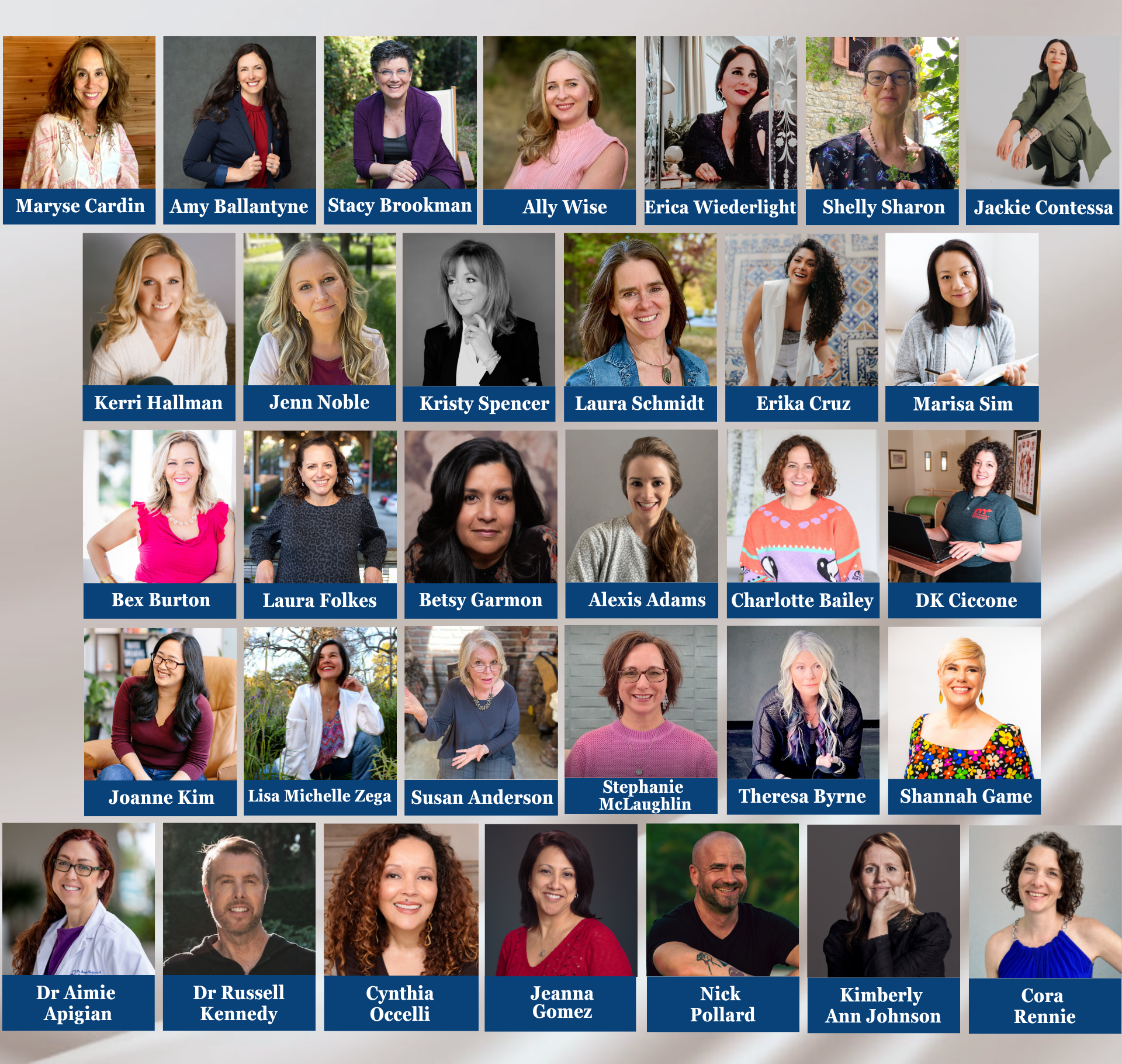
I hand-picked these speakers and experts who are at the top of their fields.
Each one has a particular perspective on how people pleasing shows up in a certain area of our life: romantic partnership, parenting, workplace, our relationships to our body, money, purpose, emotions, pleasure, and food...
We discuss nervous system, trauma responses, conditioning, parts theory, inner child work, attachment, mother wound, unmet needs, abandonment, and shame... we dig deep into all of it, and you'll be surprised at how much is relevant to your personal story.
Despite their busy schedules, each of these speakers eagerly jumped on board to deliver their very best for this event. Each one has very real and raw personal experience with people pleasing. They have been where you are today and have walked that walk, and now are here to help you find the next best step for you.
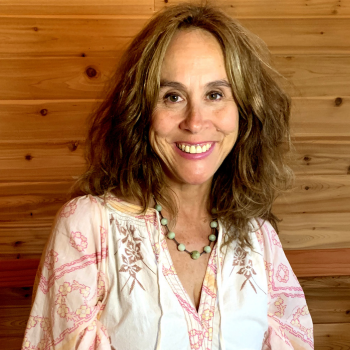
MARYSE CARDIN: Self Talk to Raise our Frequency and Create a New Reality Free from People Pleasing
- We can choose to talk to ourselves with the same care that we easily afford others
- We have different internal voices, and they can all give us information, but these defaults don’t need to run the show
- When you begin to access the Real you, you will know it because of how you feel
Maryse makes a person realize that when you truly are in loving connection with yourself, everyone around you will feel like they are basking in those good-feelz as well. Maryse and I talk about the power of words, the power of making choices, and the power of daily practices… we also talk about the fact that I have a legit record-skip in my system every time I consider having my own Power! Don’t worry, she helps me through it, and her response is probably something you need to hear also.
Maryse shares with us how she came to understand what her Real voice is like, and helps us know the difference between just "using" words and actually infusing them with intention. (BTW, she also infuses teas with intention and we talk about that too!)

DR AIMIE APIGIAN: The Root Source of People Pleasing - How Trauma gets Stored in our Body & 3 Key Components to Heal
- People pleasing is a survival strategy: our own needs are suppressed to maintain safety
- The people pleasing pattern originates in infancy: unmet needs during important developmental stages are perceived by the body as threat
- Dr. Aimie’s approach is integrative: true healing requires addressing the mind, the body, and the biology, of trauma
Dr Aimie, as with many on this panel, shares that becoming a mother was a very pivotal point in her story, and shaped her life's work. Trauma doesn't just heal through "love." She's found what works and wants to empower all of us.
I'm so glad I found Dr Aimie. I have a lot of personal "takeaways" from putting together this summit, and the top one is for sure encountering Dr Aimie's work (really not sure how I hadn't crossed her path before?!) She is wonderfully personable and down-to-earth, while also being a pioneer and expert in the field of trauma recovery.
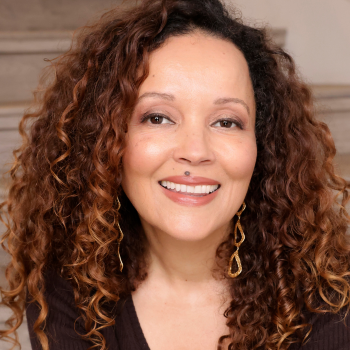
CYNTHIA OCCELLI: The Generosity of Self-Centeredness
- Choosing yourself teaches others how to treat you—and how to treat themselves
- A nourished woman gives from overflow, not obligation
- When you stop seeking permission and start honoring your needs, you'll find your passion and purpose
Cynthia has an inspiring story, but the most impressive thing about her, in my humble opinion, is how she makes an impression! You will know what I mean as soon as you tune in :) She deeply embodies what she teaches, and teaches through more than just words. She met with me prior to the interview to ensure this summit was in alignment with her work, and I learned in that moment what it means to show up as a woman who prioritizes alignment.
Sometimes you meet someone and instantly feel "I wanna be like her when I grow up." This was my experience meeting Cynthia, and the beauty of it is that I know when I see things I admire and respect in others, it's because I already AM those things. And. I joyfully acknowledge there's much for me to learn from Cynthia. I can't wait for you to meet her as well!
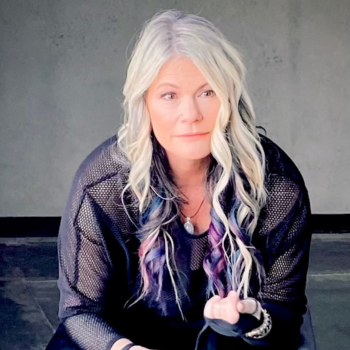
THERESA BYRNE: Stop Being So Nice! Always Pleasing Others Isn’t Kindness, It’s Conditioning!
- Let’s talk about our patterns and how we can shift them
- Learn the insidious myths surrounding people pleasing
- Get a simple framework to stop doing what isn’t working!
Theresa’s bio is wholly accurate. She is not your average... anything, and this is not your average interview. She's highly entertaining, and completely from the heart - and had me in tears at the end.
You guys, I almost missed out on this conversation and it would have been such a loss for all of us!! We had some mis-timed communication but then reconnected just as I was finalizing my speaker list. We covered so much ground in this one. My most memorable Theresa quote is actually "souls more than goals" which was off-camera, talking about what would make a successful summit. I whole-heartedly agree with Theresa that it's more important to really reach people, than to reach a huge mass of people. <3
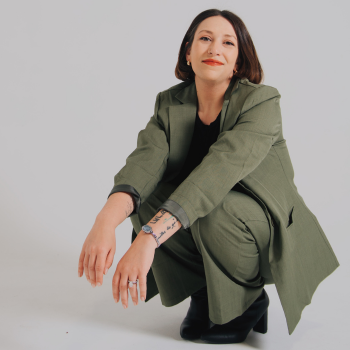
JACKIE CONTESSA: Everybody People Pleases - People Pleasing and the Enneagram
- The Enneagram as a personality archetype system
- Lets reframe People Pleasing behaviour - it is not one-dimensional!
- Everyone people pleases, even the "strong" ones who "take no sh*t"
Jackie is an Enneagram expert and helps us understand that ALL of us act in ways to attempt to maintain that status quo and our role in it. This conversation surprised me because 1: Jackie provides the BEST DEFINITION of people pleasing that I have ever come across, and 2: the personality types that I thought were completely OPPOSITE of people pleasing actually also have their own version (yup, mindblowing, but now some judgment is releasing)...
Jackie introduces us to the concept that every human on the planet has their own version of people pleasing. You don't have to know (or even want to know) your enneagram type in order to benefit from this eye-opening and heart-opening conversation <3
BONUS: we could not cover all of the Enneagram ground necessary to leave you with basic understanding of the way it works (and can be worked with) - so we recorded a second interview for you!
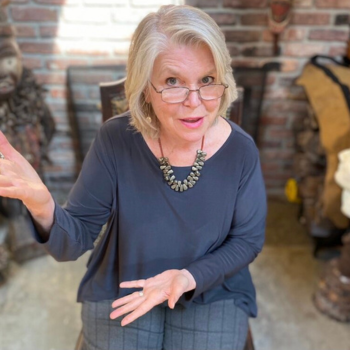
SUSAN ANDERSON: The Link Between People Pleasing, Abandonment Cycles, and Self-Esteem
- The two primal drives that are rooted in early human development
- Not having specific traumatic events (ie, even those with “perfect” childhoods) does not mean you are free from abandonment wounds
- The aftermath of abandonment leads to people pleasing, as an attempt to maintain approval & connection, and avoid rejection
Susan shares a personal story of how she experienced deep abandonment after years of specializing in helping others with separation anxiety. This personal experience led her to discover more about our primal human experiences.
Susan is an expert on abandonment recovery, and people pleasing is all about feeling, and fearing, abandonment. What I love about Susan is that she has a way of letting us know that this is just part of the human condition, and there is so much room for grace here... PLUS healing is so very possible for each and every one of us <3
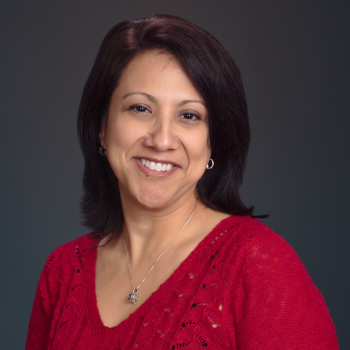
JEANNA GOMEZ: Boundaries - Saying Yes to your NO
- How do boundary ruptures begin?
- Self pleasing vs people pleasing
- Where do you begin, and they end?
Jeanna's talk was such a fabulous conversation! Everyone else is out there teaching about creating / setting / maintaining boundaries - and Jeanna comes along with a message about mending boundary ruptures.... This is a WHOLE DIFFERENT TAKE on how healing and boundaries are linked, and I personally think everyone needs to hear this!
Jeanna talks about boundaries in a way I had never heard nor considered before and this is going to be a game changer for many. Did you know your nervous system IS your boundary?!
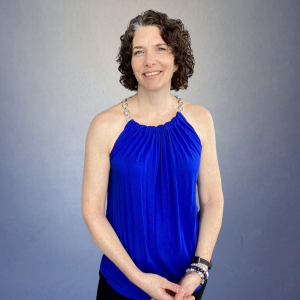
Why I Created This Summit
Understanding people pleasing
The tendency to people please FEELS like a character flaw. Our well-intentioned loved-ones encourage us to "start putting our needs first"... but there is so much more to the story.
People Pleasing has to do with our physiology, biology, nervous system, hormones, cultural and societal influences... it's a subject that is big and wide and deep and far-reaching. I've gathered gathered together experts, authors, practitioners, and thought leaders from all walks of life to tell the story of People Pleasing, because it's not a problem, but a symptom. It’s not a conscious choice, it’s a survival adaptation.
Women, for generations, and for a multitude of reasons, have not felt fully safe in the world. Some of us, in some parts of the world, now have access to safety and resource and we can begin healing. Together we will:
Uncover and understand root causes
Embrace self-compassion
Begin creating deep connections you crave
What others are saying
"Purchased the program package, and am so happy I did"
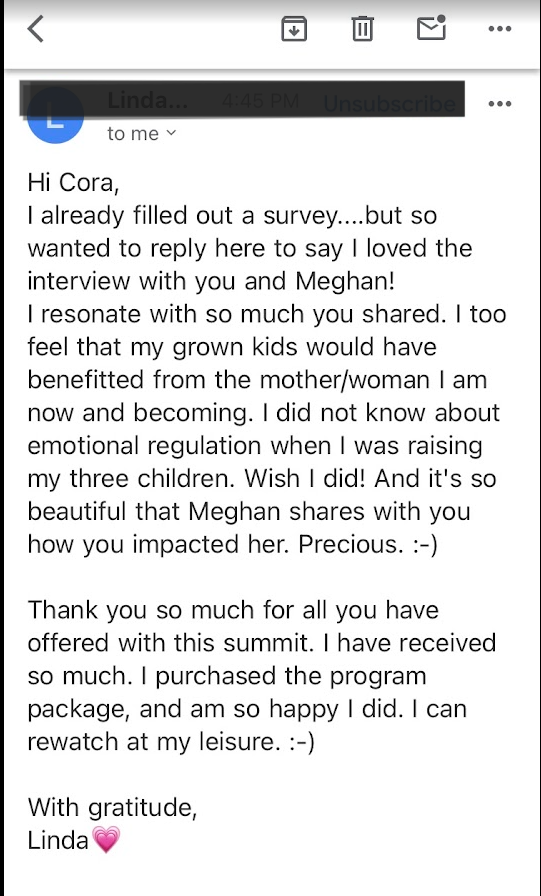
"This was such a GEM of a summit"
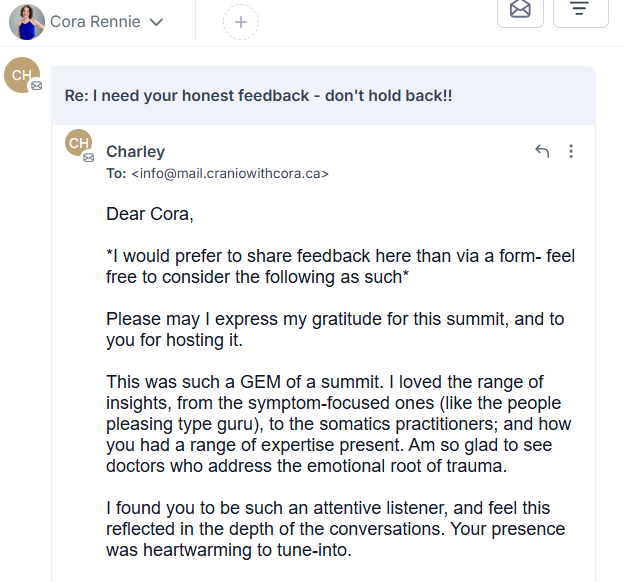
"I'm so glad I chose this summit"
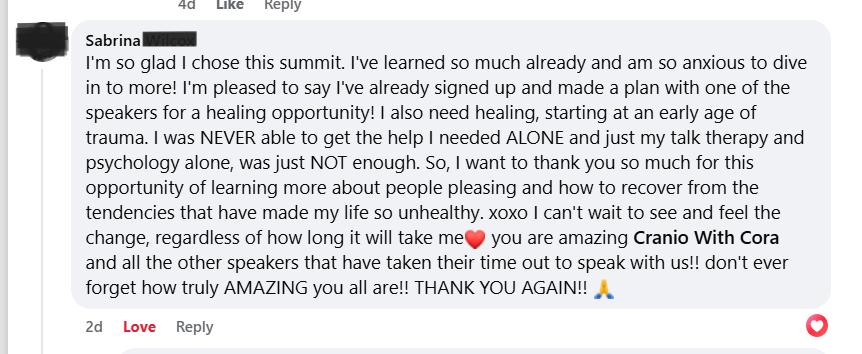
"I was pleased I bought the full pass straight away"
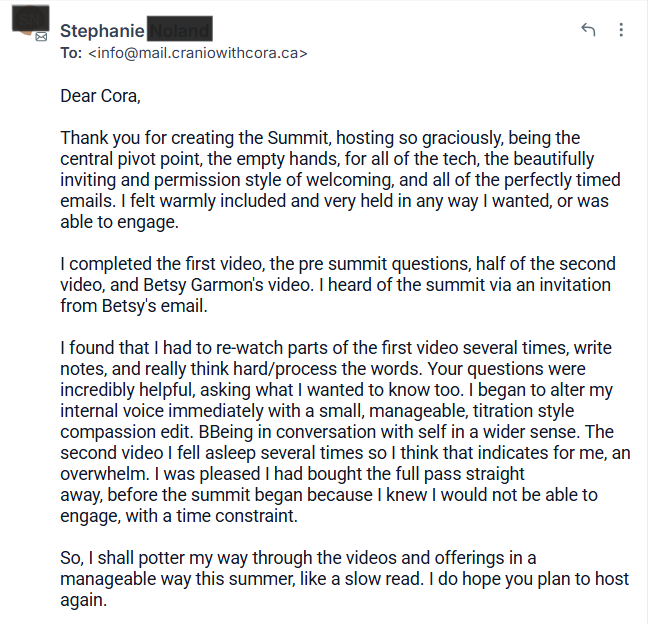


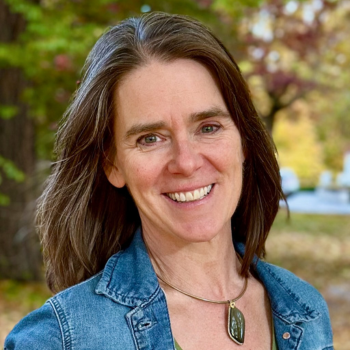
LAURA SCHMIMDT: Welcoming our People Pleasing Parts with Internal Family Systems (IFS)
- Brief overview of IFS and why it works so well
- How People Pleasing fits into the context of IFS
- Demonstration of IFS: Laura coaches Cora through a mini-session
I don't know if you've had an experience of connecting with someone and then later find yourself saying "if she lived down the street instead of Spokane, WA, we'd for sure be besties?" This has been my experience with Laura :) I enjoy this conversation because I see so many parallels between the tenets of IFS, and what I've learned through foundational principles of Biodynamic Craniosacral Therapy.
Laura suggested that the best way to "explain" Internal Family Systems is actually to create an experience to show how it works. So we did. :)
BONUS: don’t worry, we recorded a second interview for you that goes a little deeper into some IFS basics like exiled and protective parts, the capital-S Self, and how/when it makes sense (or doesn’t) to work with IFS solo.
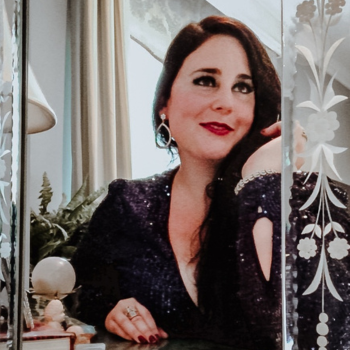
ERICA WIEDERLIGHT: Exploring the People Pleaser Relationship to Pleasure, Sex & Self-Love
- Why connecting to pleasure is so important
- The links between sexual empowerment, genuine self-love, and pleasure
- Pleasure as a practice, and a pathway for healing
Erica and I were completely present, free-flowing through this whole conversation. I completely attribute this to HER ability to be very in-the-moment, that I was able to also enter into that. She helps us understand how and why practicing Pleasure is actually a deeply healing and deeply spiritual path. Erica shares that she did “all the healing things” but they only brought her part way. But when she developed a relationship with being able to experience Pleasure... that was THE THING that uplevelled her healing journey.
You are ALL going to want to begin to explore following pleasure as a way to experience safety, abundance, empowerment, and a greater capacity for all that life tends to throw at us... Don't miss this one!
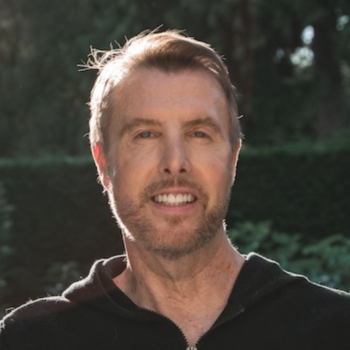
DR RUSSELL KENNEDY: How Anxiety and People Pleasing are Linked
- The insidious ways victim mentality traps us
- The Repetition Compulsion — how we unconsciously recreate our childhood patterns in adulthood
- The single most important thing to heal
Dr Russ teaches us about the link between anxiety and people pleasing, how the "worry" in our minds is just 1/9th of the iceberg, and what needs to happen to address the 8/9ths below the surface.
He shares that it was his people pleasing that led him into the medical field, and thank goodness for the rest of us - because now he brings both his medical knowledge and his personal experience into his work on effectively healing anxiety. I deeply appreciate Dr Russ' candidness and expertise, and his merging of the science and the "woo." I also deeply appreciate his shoutout to craniosacral therapy :)
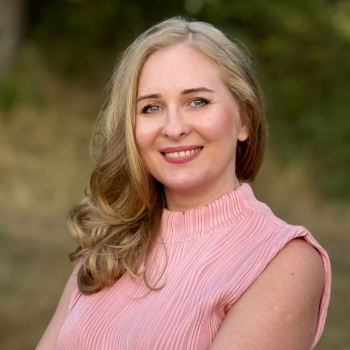
ALLY WISE: Transforming our Relationship with the People Pleasing Pattern; People Pleasing Through the Lens of the Nervous System and Trauma Responses
- People pleasing is an adaptive response to self-disconnect or some kind of emotional hurt, as well as low capacity for emotional regulation.
- How to de-identify from the pattern and create space to relate to it, as well as how to provide your system with an interim identity to stay grounded.
- As the system knew how to adapt, it also knows the sequence of the reversal process. The wisdom comes from the pattern. We heal through it, we don’t fix it.
As I explain to Ally in my introduction, her IG posts are how my cranio bestie and I stay in connection with each other :) The way that Ally communicates her understanding of the wisdom of the body ,and ways we can provide conditions that allow for healing to happen, is profoundly unique. It resonates so much more than any other "trauma information" that shows up in my feed.
Ally helps us understand our nervous system responses and that people pleasing isn't "who we are." It's a big deal to give up an identity though, and she helps us with that also
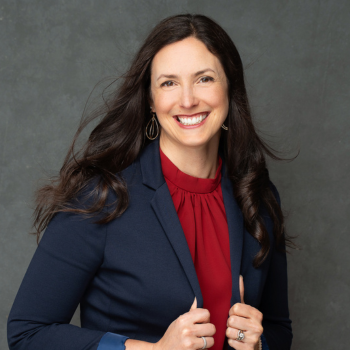
AMY BALLANTYNE: Breaking free from People Pleasing - How to Finally Realize you are Enough
- Learn how to repair the relationship with yourself
- Learn how saying yes to good things is most likely in the way of you being able to access what is meant for you
- The process of Remembering when you knew you were enough
Amy is the host of the podcast “Power to the People Pleaser” and her book “Celebrate Yourself, Become your own Cheerleader Through Mastering the Art of Self Love and Unshakable Confidence” is out now! She believes that the more of us who do this work… the more we will be models for others, including our children, and that is how we will create generations of humans who truly know that they are enough.
Amy helps us with the process of remembering our worth. She is so open about her own journey and how deeply she believed she could heal her relationship with herself and come to a place of no longer needing daily reminders of her enoughness.
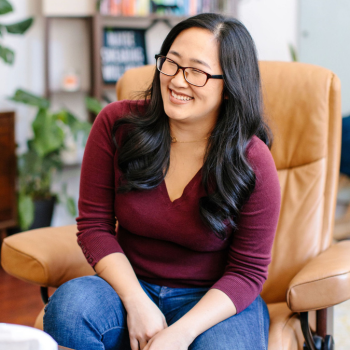
JOANNE KIM: Feelings that Highly Sensitive People Pleasers Overdo & Underdo - and how it makes hard things WORSE!
- What feelings are all about
- Why it's important to not play favorites with feelings
- Why People Pleasers tend to OVERDO shame and UNDERDO anger - and why that gets us into trouble!
Joanne and I both identify as highly sensitive persons, and most likely a lot of you do as well! As someone who processes the world through feeling, I deeply appreciate this conversation about our relationships WITH our emotions. Joanne truly is a Feelings Translator, and everything she had to say really resonates!
Joanne explains to us that we do actually "play favourites" with emotions, and I have to say it was quite a surprise to realize which emotion is actually my "favourite" (this is cringe-worthy!)
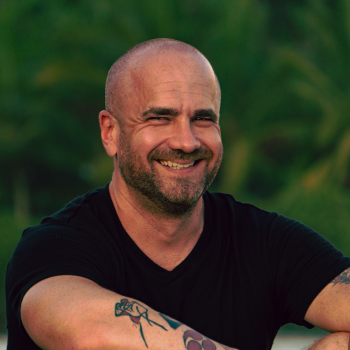
NICK POLLARD: The Link Between People Pleasing and Addiction, and Recovery from Both
- Correlations between people pleasing and addiction, and what is recovery?
- The hidden problem: what people pleasing is actually about
- What you get to be when you no longer people please
When I realized this man was out there in the world calling himself “The People Displeaser,” I knew I had to talk to him. If you are a true people pleaser, you certainly don’t find it easy to DISPLEASE anyone, at any time... But Nick has a way of letting us know that we can "not people please" and still be ourselves - we don't have to automatically become complete a$&holes (that part's optional;)
Nick is graciously open about his personal journey with people pleasing and addiction, and is never shy about telling it like it is. He challenges all of us by stating that the main factor underlying all of people pleasing is: DISHONESTY. It's not fun to hear, but it certainly ain't wrong...
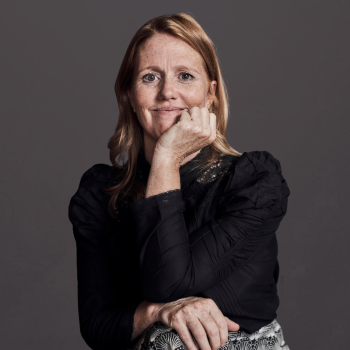
KIMBERLY ANN JOHNSON: People Pleasing Behaviour Through the Lens of Female Biology and our Social Nervous System
- Humans have a unique social nervous system, which is especially sensitive in females and governs how we seek safety and connection
- People pleasing (fawning) is a highly adaptive, physiological, and socialized response, especially for women who are often physically or socially vulnerable
- Biology ultimately prevails: understanding and working with our natural responses - rather than against them - is key to healing and empowerment
I've been a huge fan of Kimberly's and avid follower for years now. She was the first person I encountered who helped me really understand what my animal body nervous system was all about, and that I can embody "mama bear" energy (jaguar energy) on MY behalf as well - not only for others.
Kimberly teaches that we need access to ALL of our nervous system responses - and what that means when it comes to our social nervous system, both in safety and under threat.
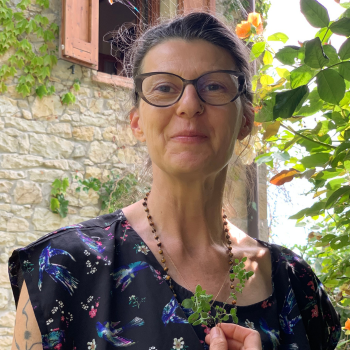
SHELLY SHARON: The Mother Wound: What it is, and How it Leads to People Pleasing
- What is the Mother Wound?
- The link between Mother Wound and chronic shame, and how it leads to people pleasing
- How to break the cycle of people pleasing by healing the Mother Wound
Okay, I have to tell you that my first interaction with Shelly was through her communicating to me - in her honest, clear, authentic way - asking me for clarification on some of the parameters I had opened with regarding this summit. She let me know that she needed to proceed in a way that allowed her to maintain integrity around the kind of relationship she has nurtured with her followers. I'm sharing this because I have learned so much from these speakers - above and beyond the talks themselves! I love seeing women being embodied examples of what it looks like to hold to values, maintain clear boundaries, and prioritize connection <3
Shelly helps us make sense of a pretty complex topic. This is about our primal needs as infants, and how our systems know we need things from mom... and what happens when we inevitably don't receive all of them. Plus: how it's never too late to heal.
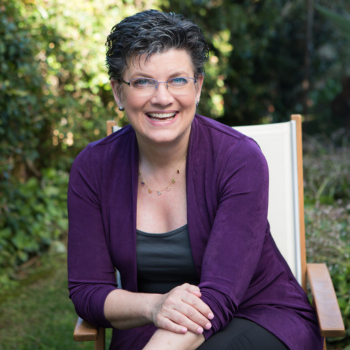
STACY BROOKMAN: Building Resilience so you Can Stop Seeking Approval
- The link between imposter syndrome and people pleasing
- How to choose thoughts other than the ones your brain offers you in times of stress
- What it means to be resilient, and what’s on the other side of recovery from people pleasing
People pleasers are STAR employees - which means we tend to get noticed and climb the ladder quickly - and then STRUGGLE... because leading is hugely uncomfortable (and impossible) when you are bending over backwards to be liked by everyone. Stacy and I share stories that center around leadership roles and people pleasing in the workplace… but if you don’t consider yourself a leader (first of all, that could be the People Pleasing talking) or you aren’t currently working for an employer - this conversation is still for you.
What Stacy ACTUALLY talks to us about are the ways our system will react in different dynamics (ever make a mistake and have your response to that take you out?!) and how we can work with our nervous system and our emotional states to shift out of patterns.
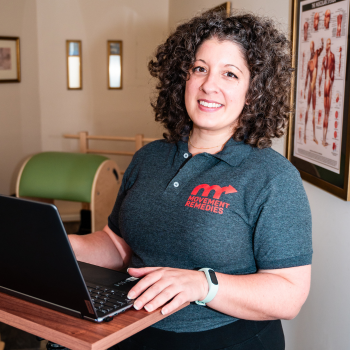
DK CICCONE: The Link Between People Pleasing and Chronic Pain - How to Find Safety in Movement and in Your Body
- People pleasing and disconnect from body
- Releasing self-judgment to prevent pain
- Using empathy as a super power
Unfortunately, there is a significant link between people who experience chronic pain, and people who have the people pleasing pattern running in their system. Even if you DON'T have chronic pain, DK has so much to offer about our relationship to our body, and our relationship to MOVEMENT. This was one of my favourite conversations of this whole series.
DK helps us understand that it's important to come back home into our body, and that movement can be our access into stillness
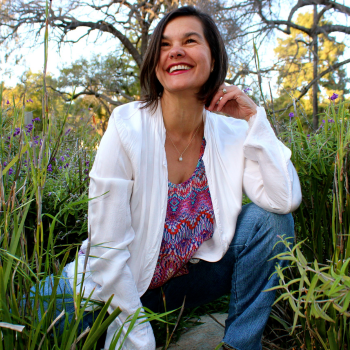
LISA MICHELLE ZEGA: The Loss Beneath the Pleasing
- We don't do grief well: grief and loss aren't the same thing
- People pleasing behaviors arise from early experiences of not feeling belonging
- We all share core human experiences of loss & shame
I knew there had to be a conversation around grief... because every healing journey includes a lot of grieving. We have events to grieve, people to grieve... and whenever shifts/transformations do happen, we grieve they couldn't have happened sooner. BUT THEN, I connected with Lisa Michelle and she completely blew my mind, speaking about grief in a way I've never heard before. I PROMISE you will think about grief differently after this talk!
Lisa Michelle teaches us that loss and grief are two separate things, and that healing happens only when we meet our loss with grief. Yes, that’s what I meant to say... you’ll have to listen to understand fully <3
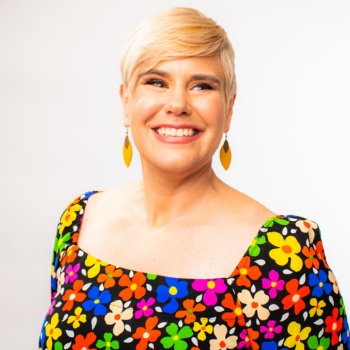
SHANNAH GAME: The Price of People Pleasing - How It’s Costing You Money, Power, and Self-Worth
- You’re not “bad with money”—you’re stuck in a pattern of people-pleasing that’s bleeding your bank account dry. Let’s fix that.
- If you’ve ever felt guilty spending on yourself but had no problem bailing out everyone else—this is your wake-up call.
- Ready to stop tying your worth to what you give? Learn how to take your power (and your money) all the way back.
Shannah is a money-talk expert. I recently dove into my relationship with money and discovered I feel I need to perform well to deserve any, and that if I don't "do well," money will withhold from me... wow. People pleasing really does show up everywhere. Shannah knows all the ins and outs of every story we carry around money, and provides some practical steps for us.
Shannah helps us see that our money stories are really a mirror for the stories we carry about our own value and worth. Yes. And yikes.
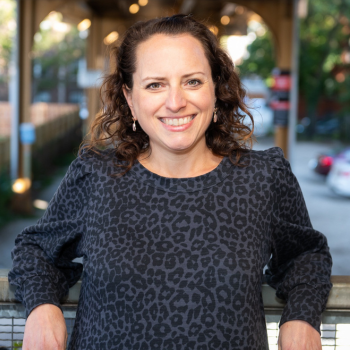
LAURA FOLKES: Beyond Willpower - How People Pleasing Shapes Your Relationship with Food
- When we’re in a food battle, surprisingly it often isn’t really about food
- We need to connect when you feel out of control with food, with how you feel at risk in some way
- The unexpected reason people-pleasing can lead to binge eating
I shared in my social posts that I really thought I was having this conversation "for other people out there who struggle with food" and then realized I have certain dynamics with how and when I let myself have treats... (#reward&punishment and also #deservingafterachieving.) After this conversation I also clued in that there are certain foods I eat, or ways that I sometimes eat, that I don't ever let other people see... (#foodasamirror)
Laura helps us to understand that people pleasing keeps us hungry. Even if you don't feel you "struggle" with your relationship to food, you might be surprised at what shows up when you look a little closer.
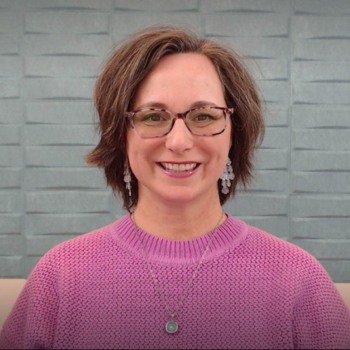
STEPHANIE MCLAUGHLIN: Turning 40 - the Link Between People Pleasing and Major Life Transition
- It's not common cultural knowledge that we go through at transition sometime around age 40
- It's around this time of our lives we begin to reckon with the habits and patterns that are holding us back from achieving our best life
- Often, that reckoning goes back to our childhood and the environmental failures that left a mark on us - some of which can lead to us becoming people pleasers
Even if you are one of the few humans on this earth that didn't feel turning 40 was hugely pivotal - you will STILL be completely captivated by Stephanie's story, and the personal journey that unfolded for her in the aftermath. When my friends and family ask me about this summit, I find myself saying "you should hear what Stephanie did when she turned 40..."
Stephanie had a ridiculous idea, and just ran with it, and it ended up being a life-changing adventure. This story is SO INSPIRING!
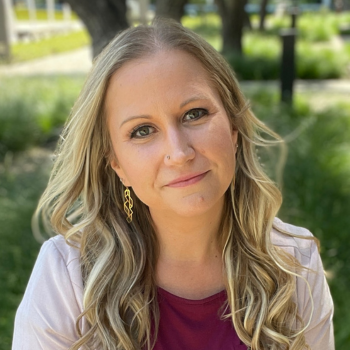
JENN NOBLE: The Hidden Link Between our Attachment Styles and People Pleasing
- Discover how each attachment style has its own version of people pleasing—and why it's not always obvious
- Learn why people pleasing is actually a survival response rooted in early attachment wounds, not just about “being nice”
- Walk away with one powerful tool to stop self-abandoning in conversations without starting a fight
Jenn and I have both been in the dating world (iykyk) and it was through the struggles in that realm of my life that I learned about attachment styles. If you haven't had the joys of #datinglife, potentially you haven't yet heard of attachment styles, but even if you have - I can PROMISE you haven't heard them taught the way Jenn teaches them! This was such a great conversation on so many levels.
Jenn shares a great winter jacket analogy and gives us practical advice on how to speak our needs.
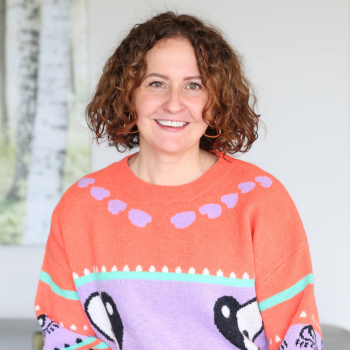
CHARLOTTE BAILEY: The Hidden Faces of People Pleasing - Why It’s Not Just About Saying No
- Understand how people pleasing shows up in subtle, everyday ways — even in women who don’t look like people pleasers
- Explore the deeper reasons why it’s so hard to stop
- Learn what healing actually looks like — and where to start if you’re ready to break the cycle
I knew I had to bring Charlotte onto this panel because she was the person who helped me see that re-reading each email 5 times before hitting send is actually one way people pleasing shows up... you'll be surprised at how many "subtle" behaviours are included! Also surprising: the realization of how all of these seemingly “little things,” which seem so harmless, actually point to all the ways we don’t allow ourselves to be seen or take up space in the world...
Charlotte helps us explore the different archetypes of People Pleasers (you may identify with more than one, and that’s okay!) and really highlights all of the hidden ways we hide and make ourselves small in our lives.
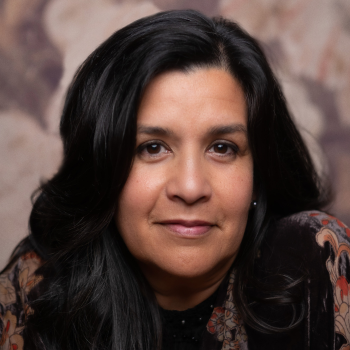
BETSY GARMON: Create Your Way Home
- Self-awareness is a component of emotional Intelligence that people pleasers often deprioritize when they over-focus on empathy and social skills
- Creativity is a practical, low risk way to cultivate self-awareness and find your voice
- Writing and visual journaling are powerful tools for increasing internal awareness and identifying boundaries and limitations
I reached out to Betsy because I saw an interview where she talked about "slowing down to the speed of listening" and something in me called out for me to do just that. When I spoke to her and she talked about leading an art class where women were having an identity crisis when asked to have their own opinion of what colour to use - I knew this audience would relate.
Betsy knows that creativity is one of the side-doors into healing. She helps us explore our relationship to our creativity and how being creative gives us opportunity to have an opinion

ERIKA CRUZ: When Gratitude Turns Into Guilt - The First-Gen People Pleasing Trap
- People pleasing is actually people hurting
- If your parents sacrificed everything, it's so you could live a full life
- The power in leading with courage and listening to what you want - especially when it doesn't make sense to others
Erika said No to all of her accomplishments and her successful life... despite also feeling that her parents had worked so hard for her to be able to have those things. She has amazing insight, not only into how we tend to fall into "traps" but also what it takes, and how, to move out of them. This was such a great conversation!
Erika talks about what "first-gen" means, as well as the very real fact that females are conditioned with different expectations - and how important it is to embrace our inner chingona
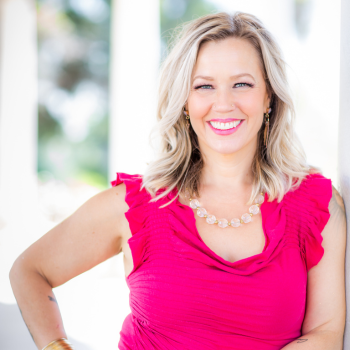
BEX BURTON: You’re #1 - Your Top Priority to Enjoy the Life and Love you Desire
- Discussion of the growth and healing process, and how old patterns will resurface in relationship. This prompts deeper personal work!
- Connecting to self and having authentic self-expression is foundational for healthy relationships. Expressing even in small ways, like clothing style! can create meaningful change in old patterns
- Conscious movement is a healing art that helps you reclaim exiled parts of yourself
I found Bex because of my keen interest in how people pleasing shows up in our dating lives. Bex talks about realizing she was the common denominator in her past relationships - and those words apply to me as well! She helps women who want to nurture the relationships they're in and have tried everything... except the thing that helps relationships the most - which is connecting to their own sources of joy. (And this, my friends, is Bex's expertise!)
Bex speaks openly about her personal experience with burnout and depression, and how the healing journey comes in waves, with different levels and layers of what sometimes feel like complete reorganization. And now, beautifully, more of her interests and gifts all merge together, and are all included in her work helping others!
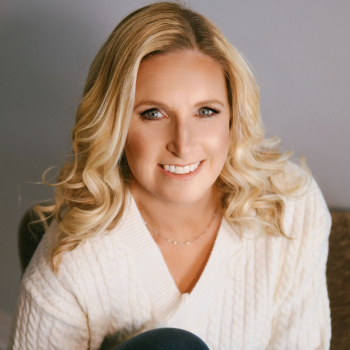
KERRI HALLMAN: From People-Pleasing to Power - How Your Hormones Shape Your Boundaries
- Empowering women to understand and listen to their own bodies
- How hormone imbalances can manifest as symptoms that most of us just accept, but can actually be addressed to improve our quality of life
- The links between imbalanced hormones, chronic stress, unmanaged boundaries, and people pleasing behaviours
I had suspicion that our hormones, particularly as women, had an impact on our people pleasing behaviours - but never would have considered our hormones and boundaries were linked! Kerri is a wealth of knowledge, and opens up a whole new world where we can use actual tangible measurements of our bodily functions to inform how we move forward.
Kerri is a hormone expert and helps us understand how prioritizing balanced hormones helps us feel great in our bodies, which leads to moving differently in the world and in our relationships.
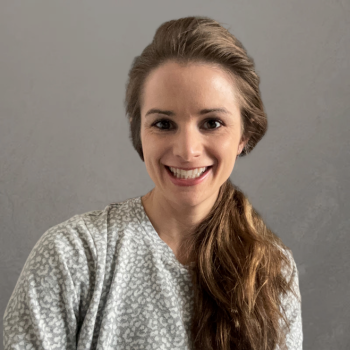
ALEXIS ADAMS: The Impact of Perfectionism on Motherhood
- Strategies to let go of the idea of being perfect
- Misconceptions around perfectionism
- Impact of perfectionism on parenting
I found it so important to speak on the topic of how people pleasing and perfectionism are linked, and how they show up in parenting. As Alexis points out, our kids learn from what we do and how we be, not the words we say - so our mental health and the narrative we tell ourselves can deeply affect their journeys as well. Even if you aren't a parent, this conversation is for everyone who has ever had perfectionist tendencies ;)
Alexis helps us understand how our drive to perform, be productive, and people please, takes us out of meaningful moments and meaningful connections with the humans we value most.
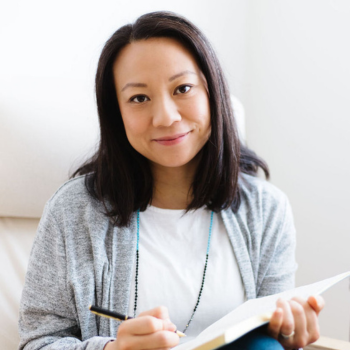
MARISA SIM: How to Break Free from People Pleasing Using your Subconscious Mind
- Get to the root cause of your people pleasing
- What is the subconscious mind?
- 3 ways to use NLP in your life
Marisa introduces us to the Mother Wound and Neuro-Linguistic Programming. She has a definition of "subconscious mind" that is different from what I've encountered before and provides us with 3 practices we can incorporate right away.
Marisa shares openly about her childhood experiences, plus also what shifted for her that she now feels compelled to have more purpose and speak her mind in the world.

KRISTI SPENCER: Politely Saying No and How to Best Say Yes
- The CARE method of saying No
- Being polite doesn't mean you are a pushover
- Every interaction is an opportunity for connection, even when you are delivering bad news
I knew I had to speak to Kristi because I was 100% certain that being trained to be polite was for sure part of the cause of my people pleasing.... but Kristi is out there in the world saying that etiquette and manners are actually a road to empowerment. (Say what now??!)! You'll have to listen in to understand what this is all about!
Kristi helps us understand that all conversations are an opportunity for greater connection - not rupture or disconnect - even those hardest of hard conversations!
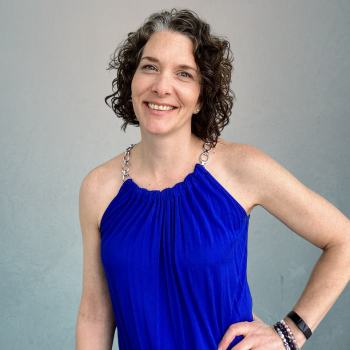
CORA RENNIE: There's More to the Story - Expressions of Healing
- The Role of the Body’s Wisdom in Healing – and how we often abandon not only ourselves but our innate wisdom
- The Role of Community in Healing – a dance occurs in our journey of healing: we need connection to heal, and we need to heal trauma to bring our social nervous system back online for connecting
- The Role of our Felt-Sense in healing – experiences that occur in our body, which become new “knowing,” foster the greatest healing
I've had so many questions through this process, from speaker panelists and summit attendees alike, about my personal story and what I've learned about people pleasing. So I slid myself into the panel lineup to share with you what I know. I started this summit because there is more to the story of what causes people pleasing, and of course there’s also more to the story of how we heal...
One of my biggest pain points - and therefore also biggest motivations to do this work - is that I also raised a people pleasing daughter. So I invited Miss Meghan Rennie onboard to interview me, and you get a front row seat!
That's right - when you purchase NOW for just $97 you can get your ALL ACCESS PASS that includes...
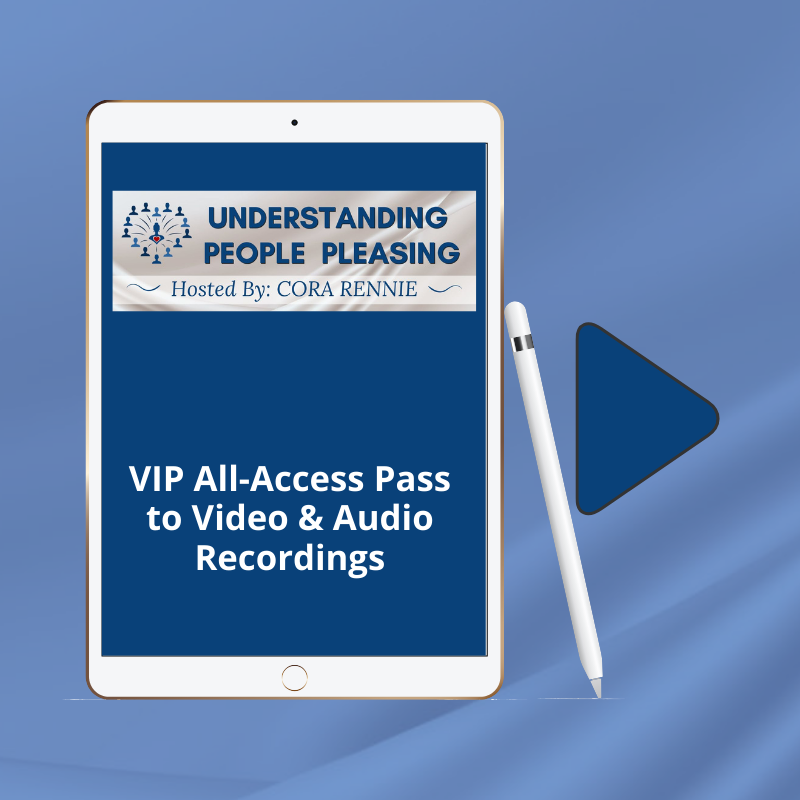
All-Access VIP Pass
VIDEO + AUDIO Recordings
Unlimited access to each of
the 34 interviews! Have the convenience to watch on demand or listen on the go with the downloadable audios. Transcripts included!
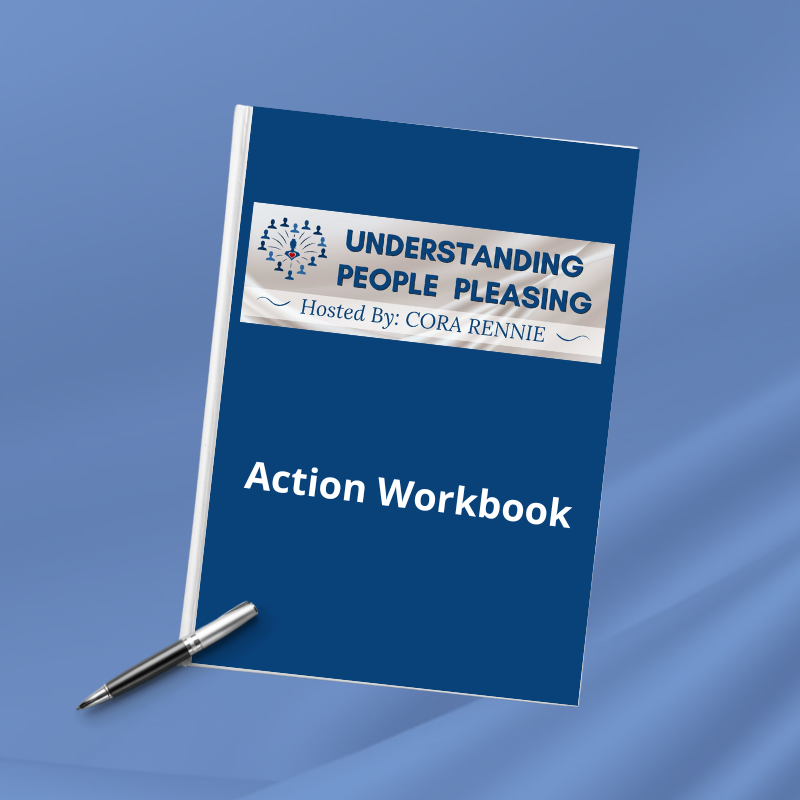
Action Workbook: for Self-Reflection, Awareness and Healing
Inside you'll find key takeaways from each expert, and prompts to help you engage more deeply with all of the content - and really personalize your journey with this training


SPEAKERS FEATURED IN
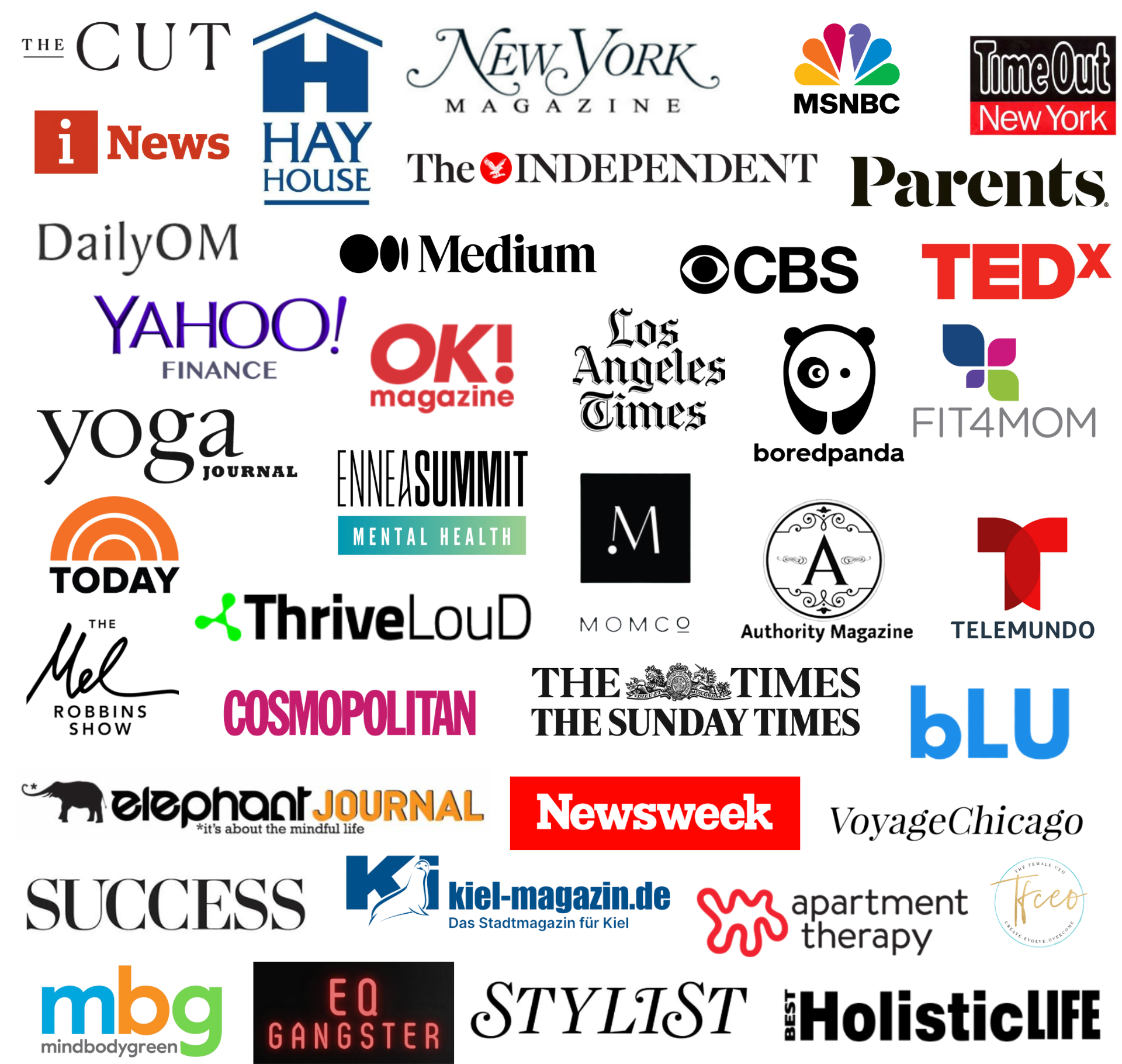
OUR PANEL OF EXPERT SPEAKERS:

Maryse Cardin

Amy Ballantyne

Stacy Brookman

Ally Wise

Laura Schmidt

Erica Wiederlight

Charlotte Bailey

Joanne Kim

Marisa Sim

Jackie Contessa

Jenn Noble

Shelly Sharon

Kristi Spencer

Stephanie McLaughlin

Nick Pollard

DK Ciccone

Erika Cruz

Betsy Garmon

Laura Folkes

Susan Anderson

Bex Burton

Kimberly Ann Johnson

Kerri Hallman

Jeanna Gomez

Alexis Adams

Dr. Russell Kennedy

Shannah Game

Dr. Aimie Apigian

Cynthia Occelli

Lisa Michelle Zega

Theresa Byrne
